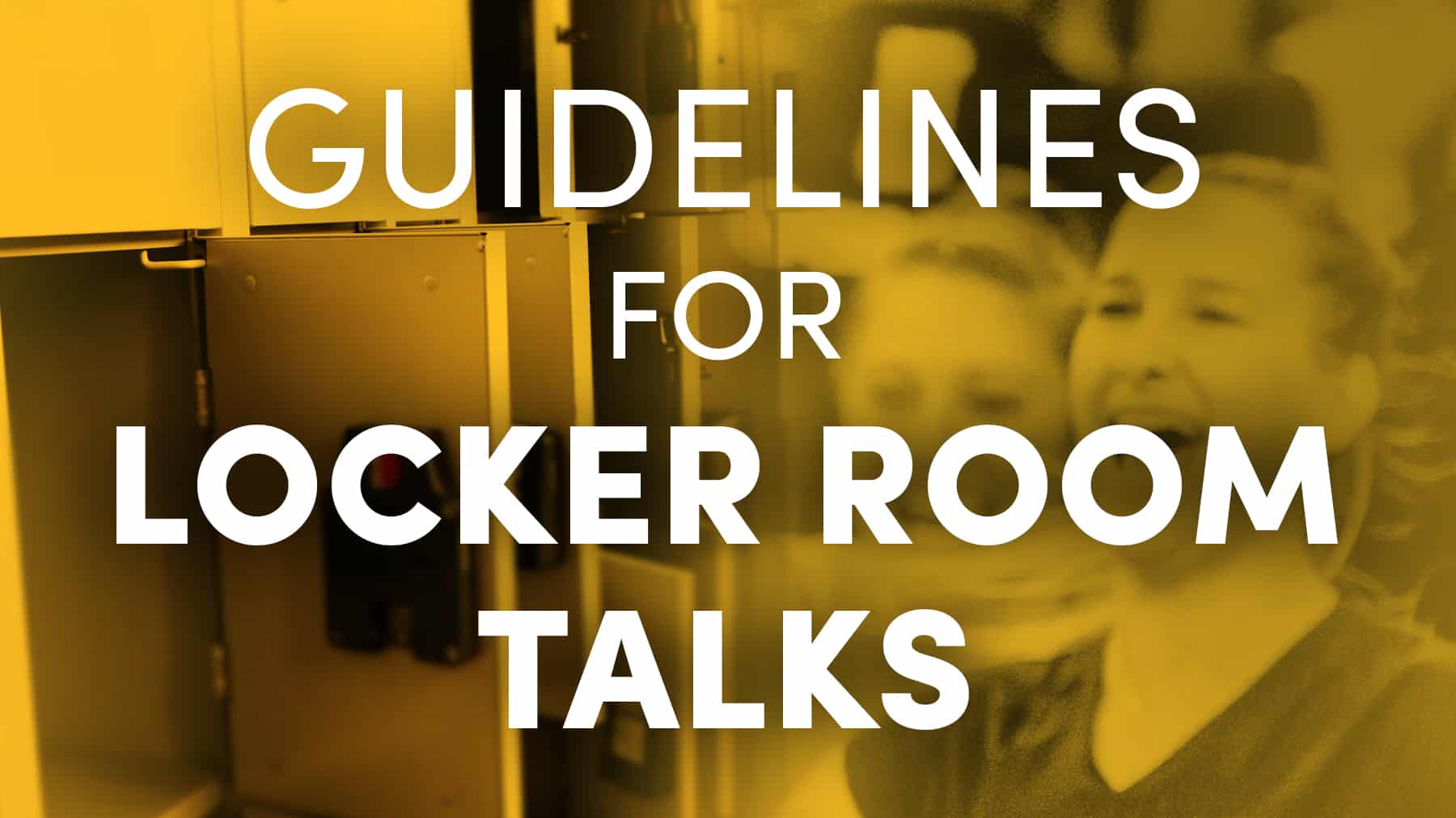Download a printable PDF of these tips
When it comes to locker room talks, there are no perfect blueprints for success. Coaching is like teaching in that the process is an extension of the coach's personality.
Everyone has his own personality and should live within it. Any time you try to be someone else, you will sound false and people will see right through you.
All things being equal, winners will be the ones with greater motivation. Motivation doesn't have to be expressed in ranting and raving. It does not have to take the form of an inspirational story. There are not too many coaches out there who believe in impassioned oratory.
You can change the vibe in the locker room before a game - if what you are telling the team is backed by good preparation. What you have to do, as an old coach once said is, "Do what you believe in and be yourself while doing it. If you try anything else, you will fail."
So, motivation can be ranting and raving. Motivation can be an inspirational story. Motivation can be a pat on the back or a knowing nod. It all depends on the situation and, ultimately, the personality of the coach.
But always remember: Motivation hinges on belief - strong belief in a goal, belief passed on to and embraced by the players, and shared for the remainder of the relationship. All of these must be tied into the preparation for the task at hand.
Tom Osborne explained: "All that fired-up emotion is good, but any time we line up in a formation we're not prepared for, all that emotion won't do any good. We believe that a highly motivated team is a team that is basically very soundly prepared."
Preparation is the science and art of coaching. That said, there are a few things to keep in mind when talking to your players before they take the field.
Recommendation: The following suggestions will help make your locker room talks more compelling by dispelling athlete doubts and instilling greater motivation:
- Make eye contact. People equate eye contact with honesty, and honesty is a key to success in motivation.
- Be sure of yourself and be direct. Avoid such flabby terms as "sort of," "maybe," perhaps," etc. Be firm and precise. Show confidence in yourself, your goals, and your team. All this is an integral part of the motivation.
- Don't yell unnecessarily. Yelling can be effective, but certainly not before every contest. Change-ups in tone can be useful, however. You may shock and surprise the players when they least expect it - yell when they expect a whisper or whisper when they expect a yell. A silent stare or a suspicion of a smile may also work effectively.
- Be careful about humor. Decide upon a mood and then stick with it. Don't rain a serious mood with a joke. Sure, your team can use a laugh from time to time, but it shouldn't come in the middle of a serious motivational talk.
- Steer clear of strong, emotional appeals in most cases. Overly strong appeals can defeat the purpose of a speech. When fear or emotion is strongly aroused and not fully relieved, the audience tends to shy away from the speaker.
The important constants in any speech are to keep everything simple, unwavering, and altogether credible. A team has to believe in the coach to accept his philosophy and to talk it up with others. Good attitudes and good relationships make for good morale, good practices, and good games.




